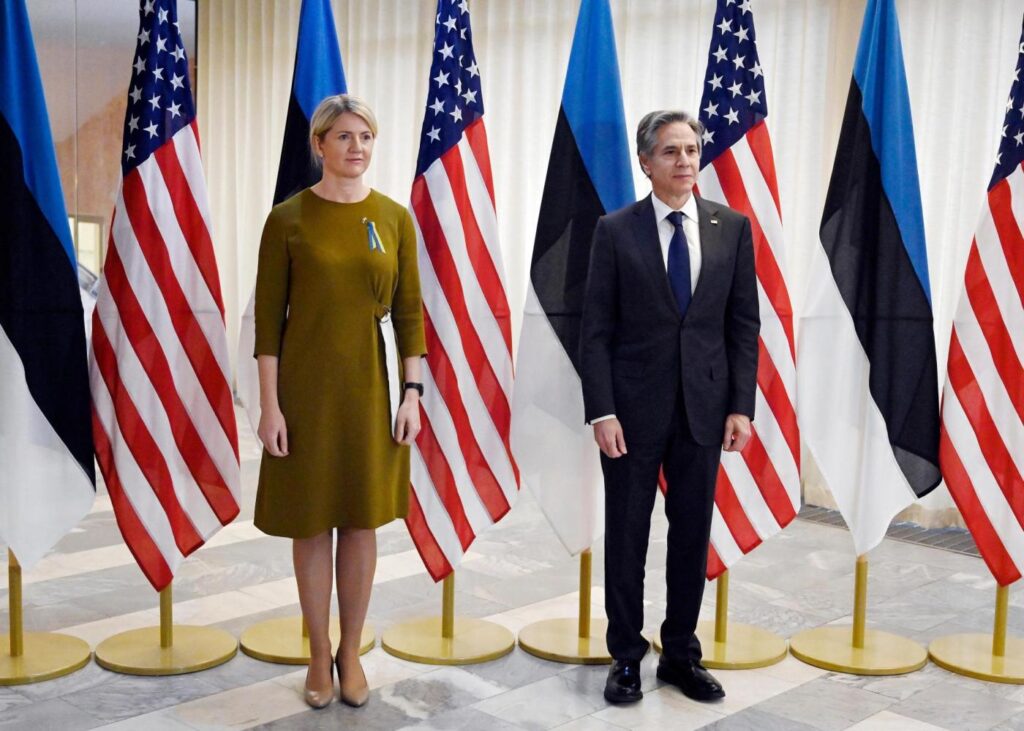
By MATTHEW LEE
TALLINN, Estonia (AP) — U.S. Secretary of State Antony Blinken wrapped up the last leg Tuesday of a short tour of the three Baltic states aimed at reassuring the former Soviet republics that NATO will guarantee their security as Russia’s war with Ukraine rolls on unabated.
Blinken met with senior Estonian officials in Tallinn, a day after hearing appeals from both Lithuania and Latvia for more support and greater U.S. and NATO troop presence to deter a feared Russian intervention.
“We will defend every inch of NATO territory with the full force of our collective power,” Blinken said, noting that the U,S. and other allies were already stepping up their presence in the alliance’s eastern flank members like the Baltics.
Estonian Prime Minister Kaja Kallas urged Blinken to support creating a “permanent and meaningful” NATO deployment in the Baltics. She called Russia “a very aggressive neighbor that we have suffered under” and one that needed to be punished for its actions in Ukraine.
She said sanctions should be expanded to cryptocurrency, oil, and sea ports “until Putin’s war machine has been paralyzed” and Russia is completely isolated from the free world.
As the war in Ukraine rages, leaders in all three Baltic states have expressed grave concerns about Russian President Vladimir Putin’s intentions for former Soviet bloc countries that are now allied or otherwise linked to the West.
“We have no illusions about Putin’s Russia anymore,” Latvian Foreign Minister Edgars Rinkevics said Monday in Riga. “We don’t really see any good reason to assume that Russia might change its policy.”
Rinkevics said that the Russian invasion of Ukraine had shown the Baltic countries in particular the need to bolster air and coastal defenses and that Latvia would like its security cooperation with NATO to be “more efficient.”
Lithuanian President Gitanes Nauseda told Blinken in Vilnius that a policy of deterrence was no longer enough and that “forward defense” was now needed. He predicted that “Putin will not stop in Ukraine if he will not be stopped.”
Memories of Soviet rule are still fresh in the Baltics and since the Russian invasion of Ukraine last month, NATO has moved quickly to boost its troop presence in its eastern flank allies while the U.S. has pledged additional support.
Support for Ukraine’s resistance to the Russian invasion was palpable in all three Baltics as Ukrainian flags and other signs of solidarity were evident in many businesses and on houses, public buildings and buses.
From Tallinn, Blinken travels to Paris later Tuesday for a meeting with French President Emmanuel Macron to discuss his recent conversations with Putin about Ukraine and efforts to convince the Russian leader to end the conflict.
